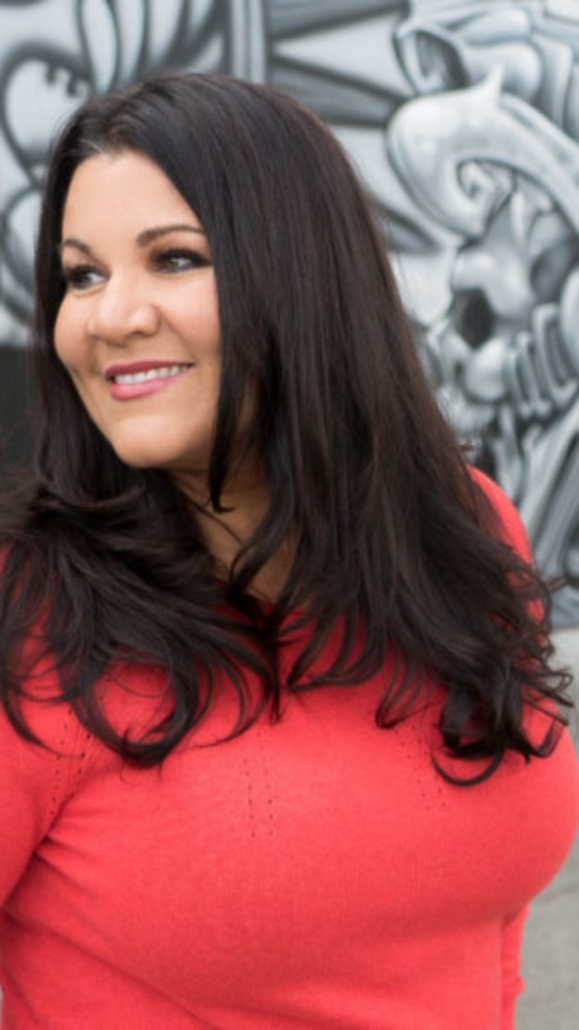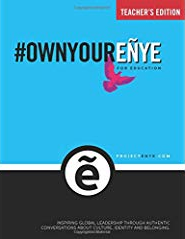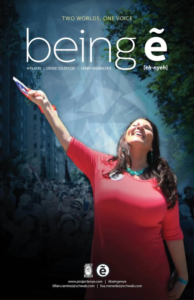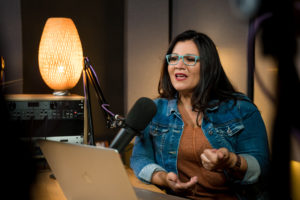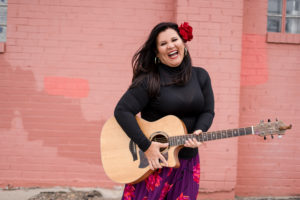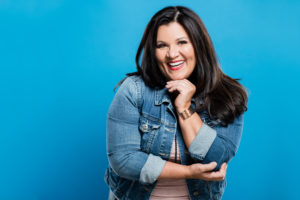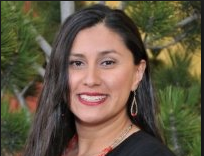
Jenny Ana Santos was born and raised in Los Angeles, CA. She is a community activist who speaks up for staying connected to ones roots. In preschool, Jenny remembers being scolded by her teacher for speaking Spanish in school. Instead of internalizing that Spanish was wrong, Jenny shared what happened at school to her mother, who then reminded her that their family comes from a powerful people. Jenny’s mother continued to raise her in the context of celebrating the beauty of their culture. For Jenny, even at a young age, these teachings instilled a strong sense of knowing who she was and what she was meant to do.
TRANSCRIPT:
Jenny: Actually, my full name is Jenny Ann Santos so it completely sounds like a southern name. When my mom registered me she put me Jenny Ana Santos but the woman that was taking all the information didn’t feel that was American enough so she switched my name around and I didn’t find that out until years later and I talked to my mom, ‘you told me my name was this why is my birth certificate reflecting different’ and she is like ‘oh, they made the changes, if you want maybe you could change it’ it’s unfortunate but it is the same story that has happened to a lot of folks that have migrated or that English wasn’t their first language and when they went to the registrar trying to even put their own name down it has been changed just because it wasn’t American enough. (music)
Denise: Your mom is from where again?
Jenny: She is from La Noria de Molinos Zacatecas Mexico.
Denise: And your father?
Jenny: El “Reluje” de los Aguascalientes
Denise: …and you were born in?
Jenny: I was born in Los Angeles, California. So when I was a kiddo my mom took us to child care some other kiddos and myself were speaking in Spanish and there was this woman and she came up to me and just started saying I shouldn’t speak in Spanish. I had no idea why she came at me in this way. It really impacted me and I started processing while being silent. Apparently, speaking Spanish is wrong and there is something wrong with me and my people and when I shared that with my mother she reminded me that, no. We come up from a powerful people, we contribute so much to this country, we come from X, Y, and Z and she shared that entire, like that beauty, that culture, that enrichment that allowed me to keep my head up high. That there was a turning point to realize who I was and what I was meant to do.
Denise: You know what we are doing here with this Project Eñye, what we are saying is that Eñye generation is the first generation born here whose parents are from a Spanish-speaking country
Jenny: I don’t feel that I was the first born here. My grandfather shared the story that our people had come from Colorado. Now, in my mind I refer to it like, ‘wait a minute, that’s America, how could that have happened?’ But the reality is that Mexico extended all the way up to Colorado and with his story is that our people migrated down and they eventually ended up in Zacatecas and then eventually in Aguascalientes and so for this concept of me being a first-born generation, that’s out the door. I am not a first generation my grandmother way back then was first generation, my grandfather was first-generation. I am actually returning back, just like the buffalo returned back to its natural habitat, just like the butterfly will return back to their natural habitat or to go to a place where their ancestors went, it’s in our DNA. It’s in our cosmic memory. When you connect your roots, when you connect to your existence, your roots can run so deep because your people have been on this land so long that when people connect back to their roots the language will prevail, our songs will prevail, our existence will prevail and our culture will maintain regardless of whatever happens.

